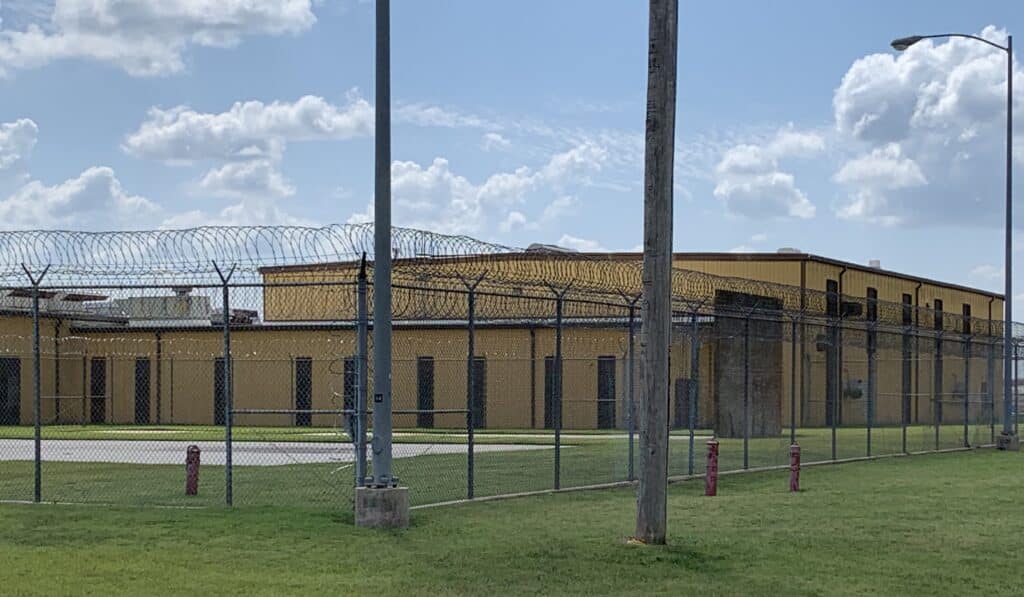- The typical standard for a first-degree murder charge is premeditation
- Capital murder is a premeditated murder that involves specific aggravating circumstances, such as killing a peace officer
- Capital murder is the only death penalty offense in Texas
Just like it sounds, a capital murder charge in Texas is extremely serious. It means someone is accused of committing a premeditated murder, but the allegations include aggravating factors that elevate the charge to a “capital” felony.
It’s more serious than a first-degree murder charge, and the stakes can be even higher. When you face a capital murder charge, your life is on the line.
Capital murder is a death penalty offense in Texas. First-degree murder carries a maximum sentence of life in prison.
Capital Murder vs. First-Degree Murder
| Capital murder | First-degree murder | |
| Legal definition | This is a premeditated murder that also involves specific aggravating circumstances, including killing a peace officer or killing a minor under the age of 15. | This is typically defined as the intentional killing of another person. Premeditation is a key factor. |
| Criminal charge | Capital felony | First-degree felony |
| Maximum sentence | Death penalty | Five to 99 years in prison and a $10,000 fine |
| Outcomes | If a jury finds a defendant guilty, jurors’ only options are life in prison or death | Jurors could sentence the defendant to anywhere from 5 years to life in prison |
| Unanimous verdict required | Yes | Yes |
| Can a defendant plead guilty | No, but the defendant might be able to accept a plea deal for a lesser charge. | Yes, but it probably won’t be a good idea. Don’t do so without consulting an attorney. |
| Special considerations for jurors | Jurors will have to consider two particular issues – whether a defendant is a future danger and whether mitigating factors make a life sentence more appropriate | None |

What Elevates a First-Degree Murder Charge to Capital Murder?
A capital murder in Texas must meet specific criteria defined by Section 19.02(b)(1) of the Texas Penal Code. A capital charge involves additional aggravating circumstances that can include:
- Murdering a peace officer (cop, firefighter, judge, etc.) who is performing an official duty
- Intentionally killing someone while committing or attempting to commit burglary, robbery, kidnapping, arson, terroristic threat, obstruction, retaliation, or aggravated sexual assault
- Killing for money or the promise of pay (or hiring another person to murder someone for money or the promise of financial compensation)
- Killing someone during an attempted escape from a jail or prison
- Killing a jail or prison employee while incarcerated
- Murdering another person in prison while serving a life sentence for murder
- Murdering someone while serving a prison term of life or 99 years for kidnapping, sexual assault, or aggravated robbery
- Killing more than one person during a single criminal activity or different criminal activities, but the murders are committed in the same manner or code of conduct
- Murdering a minor under age 15
In Texas, capital murder is the only crime classified as a “capital felony” and the only crime eligible for the death penalty.
Statistics: Capital Murder vs. Murder in Texas
In 2022, there were a total of 2,017 murder cases in Texas. According to the Texas Department of Public Safety, more than 75% of murders happened in cities with populations of 100,000 or more people.
Additionally, we researched the murder rates in Texas’ five largest counties in 2023, which reported a total of 1,298 homicide cases. In total, there were 742 murders, 293 capital murders, and 263 other homicides. Here’s how they broke down by county:
| County | Murder | Capital murder | Other homicides |
| Bexar | 115 | 0 | 40 |
| Dallas | 78 | 33 | 39 |
| Harris | 325 | 136 | 120 |
| Tarrant | 153 | 84 | 48 |
| Travis | 71 | 10 | 15 |
Degrees of Murder
All forms of murder are considered homicide, but homicide covers virtually all criminal charges that involve a fatality. Not all homicides are illegal (for example, some may be considered justifiable homicide).
The specific charge depends on the circumstances of the killing. There are many different degrees of criminal charges:
- Capital murder: This is the only death penalty offense in Texas, and is reserved for cases that meet the standard of first-degree murder but also include at least one aggravating factor. Examples include murder of more than one person, murder for financial gain, hate crimes, or murdering a public servant (police officers, judges, firefighters, etc.).
- First-degree murder: An intentional, premeditated killing – a typical first-degree murder sentence ranges from 5 to 99 years in prison and a fine of up to $10,000.
- Second-degree murder: Intentionally killing another person, but without premeditation – a typical second-degree murder sentence is 5 to 99 years in prison, and a fine of up to $10,000 may be imposed. If a defendant can prove that the incident involved a crime of passion, the sentence could be reduced to a second-degree felony with two to 20 years in prison.
- Felony murder: This is a first- or second-degree murder that occurs whild someone is committing another felony (for example, a rape, kidnapping, or arson). Anyone involved in the original felony could face felony murder charges, even if they were not directly responsible for the death. Felony murder typically results in 15 or 25 years to life in prison.
- Manslaughter: This means recklessly causing the death of another person. The key element distinguishing manslaughter from other homicide offenses (such as murder) is the mental state of the defendant. Penalties range from 2 to 20 years in prison and a fine of up to $10,000.
- Attempted murder: Someone tries to kill another person in a manner that – if they had been successful – would have resulted in murder, even if no one was ultimately harmed. Attempted murder can be classified as first- or second-degree. A typical attempted murder sentence is two to nine years in prison.
- Criminally negligent homicide: This means someone is accused of causing the death of another person through criminal negligence. Penalties include a maximum of two years in a state jail facility and a possible fine.
- Justifiable homicide: This refers to a killing that is deemed lawful under specific circumstances, meaning the person who committed the act will not face criminal liability. It typically involves self-defense, actions in defense of others, or when protecting your property (aka Texas’s Castle Doctrine).

Special Juror Considerations for Capital Murder Cases
The death penalty is the harshest verdict available, so the standard for jurors is higher. Texas Code of Criminal Procedure Article 37.071(2) requires juries to weigh two special issues in a death penalty case in Texas:
- Is the defendant considered a future danger?
- Do mitigating factors make a life sentence more appropriate?
If the answer is “yes” to the first question and “no” to the second one, a defendant will likely receive a death sentence.
Murder Penalties
Whether it’s considered a first-degree murder or a capital murder charge, the consequences will be severe. The maximum sentence for murder ranges from 5 to 99 years or life in prison. And a capital murder conviction could mean the death penalty.
Possible Murder Defenses
If you’re facing a criminal charge, contact us immediately. Constitutional rights are in place to protect you, but it’s important to remember that “anything you say can and will be used against you.” (In other words, don’t say anything and don’t answer any questions without an attorney present).
Remember that you are innocent unless proven guilty, and the case against you must be proven “beyond a reasonable doubt.”
We can work to cast doubt on evidence and witness testimony and attempt to exclude anything inconsistent or questionable. We will also seek out and introduce exculpatory evidence (or evidence that works in your favor).
Other potential defenses include:
- Self-defense
- Lack of intent
- Mistaken identity
- Mental status
- Alibi
- Illegal search and seizure
- Duress
- Intoxication
- Police misconduct




